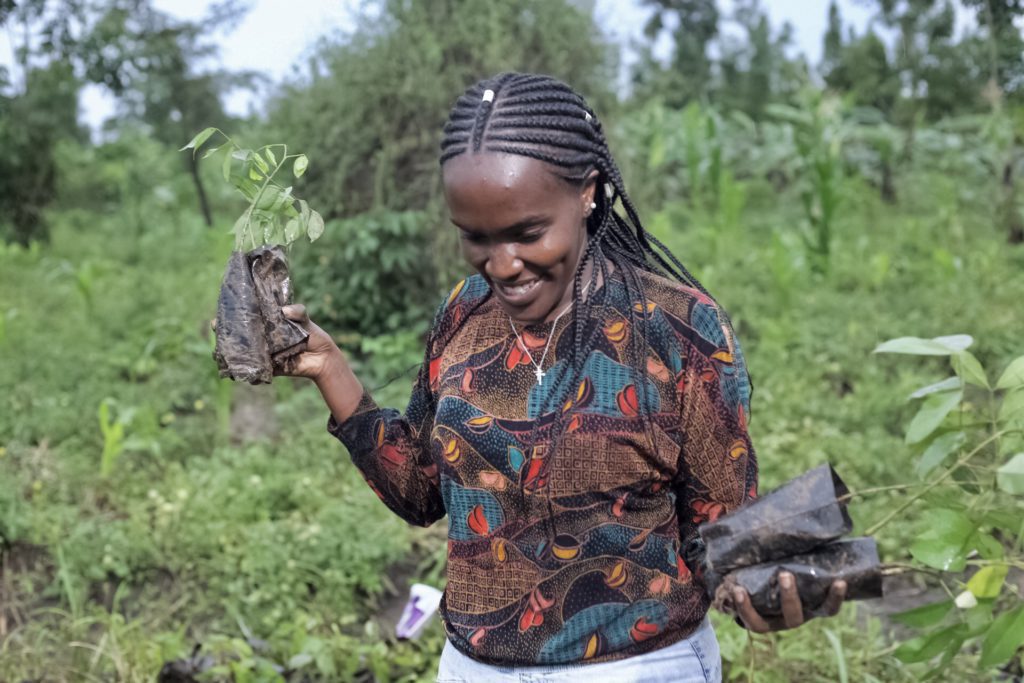- Waste Management in Uganda is beset with the same challenges that most developing countries face.
- Tree Adoption Uganda (TAU) is a youth-based non-governmental organization that operates as a non-profit.
- WasteAid expanded its reach into Uganda earlier this year, launching programs to support a more robust circular economy and address the country’s growing waste problem.
Waste Management Challenges in Uganda
Waste Management in Uganda is beset with the same challenges that most developing countries face. Rapid urbanisation, a growing population, and limited resources have overexerted legacy waste disposal systems.
Urban waste collection in Uganda is 600,000 tons, of which 40 percent is collected while the remaining 60 percent is dumped in open areas, water bodies, or informal dumps. The uncollected waste leads to environmental degradation and poses serious health risks.
In addition, poor infrastructure, a lack of investment, and low community interest in proper waste disposal create a perfect storm. However, communities, entrepreneurs, and local organizations are starting to change this story by providing sustainable and scalable waste management solutions.
Communities throughout Uganda are curating solutions to many of the challenges they face when transforming waste into wealth. Community-driven approaches address the rising waste management crisis, generate jobs, mitigate environmental pollution and risks, and protect public health.
The Jospong Group’s partnership with Uganda
In October, the Ugandan government partnered with the Jospong Group of Companies (JGC) to address the country’s growing waste management challenges by decommissioning the 39-acre Kiteezi Landfill in Wakiso District near Kampala.
JGC intends to build integrated composting and recycling systems and transfer stations to provide a comprehensive waste disposal solution for the Greater Kampala Metropolitan Area.
These systems are intended to address environmental sanitation issues and create organic fertilizer for agricultural use through compost production. Recovered plastics will be used as raw materials for a new bin manufacturing plant.
The community-based project will generate over 2000 jobs for Ugandans and provide an environmental and economic solution. The project comes after a tragic waste slide on August 10, 2024, took the lives of 23 people and caused serious property damage.
Tree Adoption Uganda (TAU)

Tree Adoption Uganda (TAU) is a youth-based non-governmental organization that operates as a non-profit. Its focus is on nurturing thriving communities where people and nature flourish.
TAU has adopted an approach integrating landscape restoration, including agroforestry and tree planting, to boost resilience among smallholder farmers challenged by climate variability. Concurrently, TAU is focused on comparing the intertwined challenges of unemployment and climate change.
Through various Sustainable land Management approaches, TAU has collaborated with 1000 individual households and planted over 450,000 trees through community-based agroforestry initiatives across various Districts in Uganda. TAU has also trained over 2500 youth in environmental conservation activities, including nursery establishment, grafting, pruning, propagation, and human-nature interactions.
Read Also: Dubai WoodShow sharpens focus on collaboration, innovation, and sustainability
WasteAid Supporting Uganda in Tackling Waste Challenges
WasteAid expanded its reach into Uganda earlier this year, launching programs supporting a more robust circular economy and addressing the country’s growing waste problem. Specifically, WasteAid focuses on reducing textile waste through circular solutions.
The charity can operate through the donation sent to Uganda, which is funded by the UK Government’s Foreign, Commonwealth, and Development Office (FCDO) as part of its Sustainable Manufacturing and Environmental Pollution (SMEP) program and with the support of its long-term partner, the multinational distribution company Bunzl Plc.
WasteAid collaborates with communities directly experiencing the most significant impacts of the global waste crisis. Through technical support, training, mentorship, investment, and building circular economy networks, it targets waste management, poverty, and health impacts by enabling communities to create green businesses with employment opportunities.
Food Waste-to-Feed Projects
In October of last year, the Uganda National Council for Science and Technology (UNCST) granted a $63,750 grant to Geoffrey Ssepuuya, a Senior Lecturer at Uganda Christian University (UCU). The award was intended to test the feasibility of using food waste in Kampala, Uganda, to produce low-cost, micronutrient-rich cricket feed.
The “Food Waste-to-Cricket Feed II” and “Food Waste-to-Piggery Feed” projects focus on transforming food waste into a valuable protein source. They also solve the problem of food waste, promote a circular economy, and address several Sustainable Development Goals (SDGs).
The project is anchored in sustainable production, a mechanism for collecting food waste from households and acquiring equipment to process food waste into feed. This helps increase food production, reduce waste, and create jobs for the youth.
Conclusion
Community-driven waste management solutions go beyond simply reducing waste. By creating income-generating opportunities, these projects have helped reduce poverty, promote equality, and foster environmental stewardship and sustainability. In Uganda, as more individuals see waste as a resource rather than a nuisance, these efforts can catalyze a shift towards sustainable, community-led development.
Local communities, NGOs, and government agencies are often key partners in the success of these projects. Regulatory support from the National Environment Management Authority (NEMA), as well as the presence of NGOs offering technical expertise and funding for scaling up, have bolstered such projects. This also highlights the importance of community education: educating people on how to dispose of waste, recycle, or sell it contributes to creating ownership among residents of these processes.
Community members respond to severe environmental challenges through waste-into-resource projects, creating jobs and building resilience. As these initiatives are implemented and spread worldwide, they provide a potential model for other areas experiencing many of the challenges with waste management.









